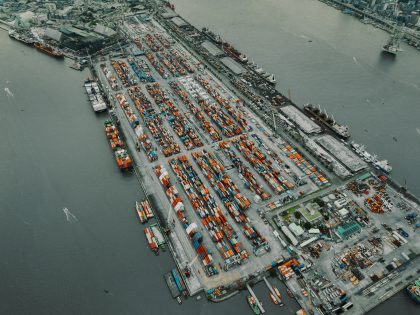Ghana’s President and what the West wants to hear
Many social media users have construed Akufo-Addo’s words in the President of France's presence, as somehow radical.

A video clip widely shared on social media purportedly shows Ghana’s president Nana Akufo-Addo making “controversial” comments and “shocking” to his guest, French president Emmanuel Macron, during a joint press conference in Accra last week. Here’s the problem: There was absolutely nothing controversial or shocking about Akufo-Addo’s words. In fact, he said exactly what the West wants to hear: Africa is poor today because of its dependency on foreign aid but really appreciates Europe’s help.
In the clip, after a reporter’s harmless question about ties between Africa and France, the Ghanaian president launched into a short speech with the preface: “I hope these comments that I’m about to make will not offend the questioner too much and some people around here.”
What does Akufo-Addo acutally say? He simply asserts that Ghana and Africa should “charter a path which is about how we can develop our nations ourselves.” What is controversial or shocking about that supposed insight? African leaders have insisted on economic and political autonomy as far back as when Europeans occupied and exploited the continent not more than half a century ago in most places (and even less in southern Africa).
It speaks to the lack of understanding of the workings of capitalism and the theory and practice of resistance to neo-imperialism that many social media users have construed Akufo-Addo’s words as somehow being radical. It should strike viewers that the French president nodded with approval throughout Akufo-Addo’s pathetic remarks. Moreover, the Ghanaian president ingratiated himself by clarifying that Africans are “not going to look a gifthorse in the mouth” but should not rely on “the generosity and charity of European taxpayers.” He peppered his little speech with the buzzwords of austerity – such as the need for African “accountability” instead of “begging” – that surely delighted Macron. And, in a final sad disclaimer, Akufo-Addo reassured the audience that “I am, as you know, a strong friend of France. I’m Francophile!”
Who is Nana Akufo-Addo? His affinity for France may have been cemented in the 1970s when he worked for an international law firm in Paris. After a long career in law and politics, and losing two previous polls, Akufo-Addo was elected president of Ghana last December as leader of the right-wing New Patriotic Party (NPP). The NPP is the descendant of various incarnations of elitist and ethnocentric political parties with a despicable history of lobbying to postpone independence in the 1950s, resisting the Pan-Africanist policies of Kwame Nkrumah in the 1960s, and pursuing dialogue with the racist apartheid regime of South Africa in the early 1970s. Today, it embraces the politics and economics of neo-liberalism and models itself after the “business-friendly” conservative parties of Europe. In short, Akufo-Addo is no radical: he has more in common with French presidents than Ghanaian farmers.
As a historian, I cannot resist contrasting the Akufo-Addo/Macron press conference with a far more significant interaction between French-speaking African and European leaders 57 years ago in what is today Kinshasa. At the independence day celebrations on July 4, Congo’s first prime minister, Patrice Lumumba, delivered a truly controversial speech that really shocked his guest, the Belgian king, Baudouin, when he said: “No Congolese will ever forget that independence was won in struggle, a persevering and inspired struggle carried on from day to day, a struggle, in which we were undaunted by privation or suffering and stinted neither strength nor blood.”
No one disputes that Africans must determine their own destiny but Akufo-Addo was simply excusing the responsibility of Macron and France and the West for Africa’s predicament. It would have been more controversial and shocking if Akufo-Addo had taken the opportunity to confront Macron about France’s debt to Africa for the slave trade and colonization; its history of arming and defending dictators like Mobutu Sese Seko and Blaise Compaoré; and the complicity of French companies in everyday corruption. In a world without Thomas Sankara and Fidel Castro – genuine anti-imperialists who demanded reparations from Europe and forged autonomous economic development policies – it is depressing that the harmless and counterproductive utterances of Akufo-Addo are misinterpreted as “controversial” or “shocking.” If only Walter Rodney were still with us to school the Ghanaian president on how Europe underdeveloped Africa.



















